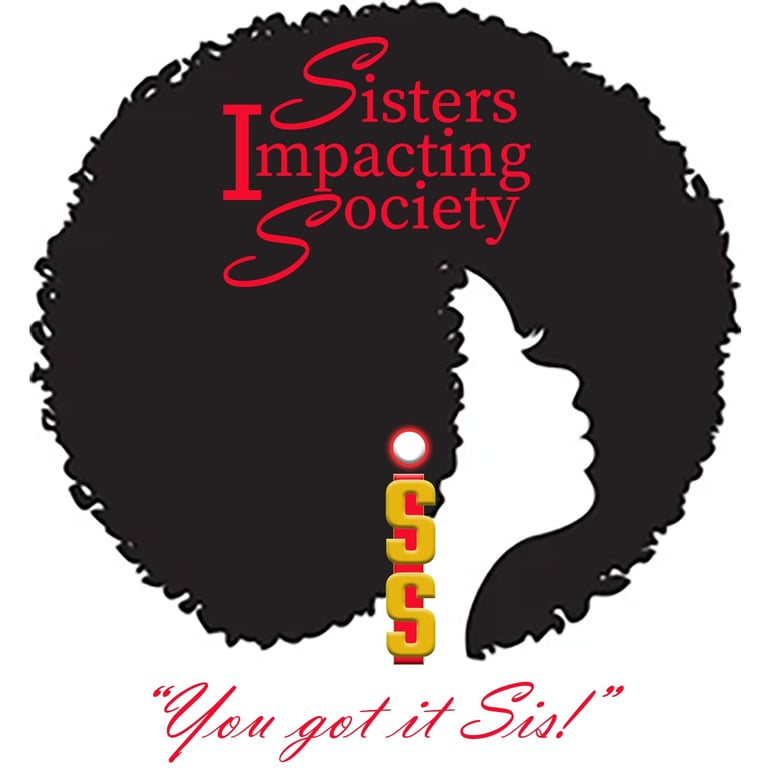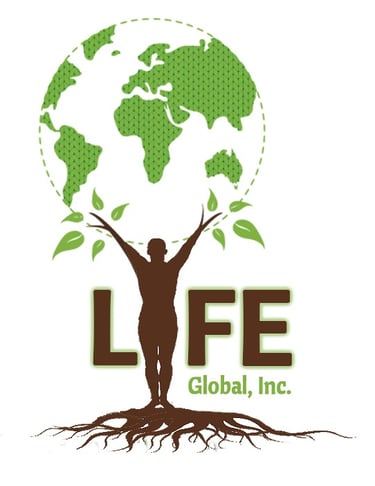

"Black heterosexual women impacting society in all aspects of LYFE!"
SIS is a DBA initiative of LYFE Global, Inc., a non-profit organization dedicated to promoting and utilizing creative ideas and evidence-based programs that increase civic engagement and commitment while simultaneously reducing community problems through collaboration with community and government partnerships and programs.
Black women in America face a complex array of intersecting challenges rooted in systemic racism, sexism, economic inequality, and historical marginalization. Here are some of the most pressing issues:
1. Health Disparities
Maternal Mortality: Black women are 2–3 times more likely to die from pregnancy-related causes than white women, often due to medical bias and lack of adequate care.
Access to Healthcare: Many Black women lack access to affordable, culturally competent healthcare.
Mental Health Stigma: There's underdiagnosis and under-treatment of mental health issues, compounded by stigma in some communities.
2. Economic Inequality
Wage Gap: Black women earn around 64 cents for every dollar earned by white men, significantly less than white women.
Job Discrimination: They face both racial and gender bias in hiring, promotions, and leadership opportunities.
Wealth Gap: Generational barriers to wealth accumulation limit access to housing, education, and retirement savings.
3. Education System Inequities
Disproportionate Discipline: Black girls are significantly more likely to be suspended or expelled than their white peers for similar behaviors.
Underrepresentation: There is a lack of representation in gifted programs, STEM fields, and leadership positions in higher education.
School-to-Prison Pipeline: Harsh disciplinary policies can funnel Black girls into the criminal justice system early.
4. Violence and Safety
Domestic Violence and Sexual Assault: Black women experience higher rates of both but are less likely to receive support or justice due to systemic barriers and cultural stigma.
Police Violence: They are also affected by police brutality, though their stories often receive less media attention (e.g., Breonna Taylor).
Community Violence: Disinvestment in Black communities contributes to higher exposure to violence and trauma.
5. Reproductive Justice
Restricted Access: Black women are more likely to live in areas with limited access to abortion, family planning, and reproductive health services.
Bodily Autonomy: Historical abuse (e.g., forced sterilization) still affects trust in the healthcare system.
6. Representation and Media Stereotypes
Media Misrepresentation: Black women are often portrayed using harmful stereotypes—angry, hypersexualized, or overly strong—undermining their humanity and complexity.
Leadership Gaps: Underrepresentation in politics, corporate leadership, and media ownership perpetuates a lack of voice in decision-making.
7. Political and Civic Engagement Barriers
Voter Suppression: Voter ID laws, purging of voter rolls, and closed polling stations disproportionately affect Black women.
Policy Exclusion: Issues that primarily affect Black women are often overlooked in mainstream political discourse.
8. Criminal Justice System Bias
Over-incarceration: Black women are incarcerated at nearly twice the rate of white women, often for nonviolent offenses.
Post-Incarceration Barriers: Those with records face obstacles to employment, housing, and child custody.
Moving Forward
Addressing these issues requires:
Intersectional policy reforms
Investment in Black-led organizations
Inclusive healthcare and education reform
Amplifying Black women's voices in every sphere


